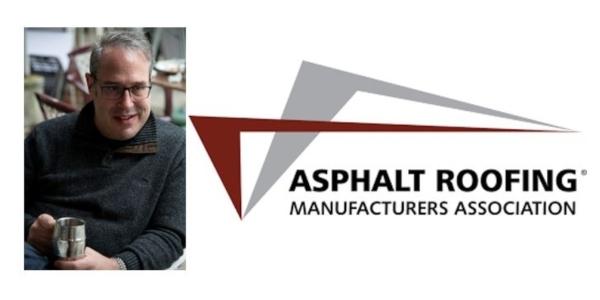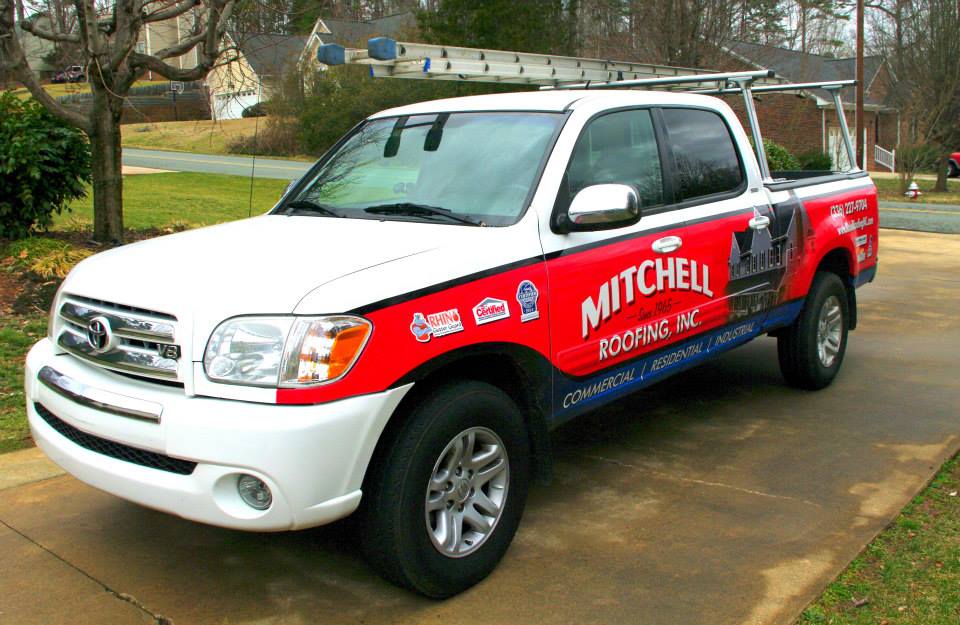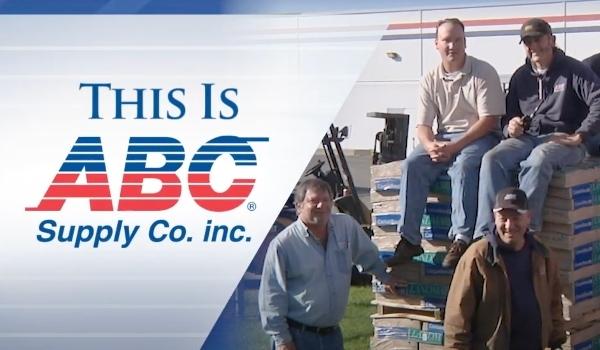Coffee Time with ARMA’s Executive Vice President Reed Hitchcock

By Karen L. Edwards, RCS Editor.
Grab your cup of coffee and hear what Reed had to say about ARMA and the challenges and opportunities facing the asphalt roofing industry.
We had the chance to talk with Reed Hitchcock, the executive vice president of the Asphalt Roofing Manufacturers Association (ARMA), to learn more about what is happening in the asphalt roofing industry.
ARMA is the North American trade association representing the producers of asphalt roofing materials, such as asphalt shingles, built-up-roofing (BUR) and modified bitumen roofing, as well as the industry’s suppliers of raw materials. According to Reed, the association represents about 80 percent of the producers of low-slope asphalt roofing materials and 99 percent of the asphalt shingles manufacturers. If anyone has their finger on the pulse of the asphalt roofing industry, it’s Reed. Reed’s been involved with ARMA since 2003 and became the executive vice president in 2007.
ARMA advocates and advances the interests of the asphalt roofing industry by leveraging the collective expertise of its members, ensuring the long-term sustainability of the industry. “What’s unique about ARMA is that unlike other trade associations, our Executive Committee is populated by the CEOs and owners of the companies that we represent,” he explained. “This allows us to be nimble and strategic as an organization.”
The labor challenges.
“Across the roofing and construction industries, labor is a huge challenge, both on and off the roof,” said Reed. “There are shortages of truck drivers to move materials, shortages of workers to install roofing systems, and shortages of workers in the manufacturing plants.”
One way of addressing this is immigration reform that meets workforce needs, which is an issue that ARMA and the NRCA recently supported in Washington, D.C. on Roofing Day. The day was spent encouraging legislators to support the Workforce for an Expanding Economy Act (H.R. 1740) and the Dream and Promise Act (H.R.6), which would tackle chronic workforce shortages and establish a market-driven visa system, enabling employers to grow their business and fill currently empty roles nationwide.
“We need smart immigration now because across the industry, employers are struggling to fill good paying jobs, which is a sign the workforce is not large enough,” Reed said. “Our industry as a whole does a poor job promoting the good living somebody can make and clearly explaining the career paths available. Employment can begin on the roof as a laborer and evolve into other roles like a foreman, supervisor or sales person. Those same opportunities for growth exist in our manufacturing plants, as well.”
As the existing workforce is aging and retiring, effort needs to go into bringing the younger generation into the industry. Reed says they are seeing this happen in their association, as well. “We see the same thing in a microcosmic level. The experts in our committees and task forces are aging and the younger members are already in their late 40s. A major initiative for ARMA is to engage the up-and-comers from our member companies in the association.”
The future of asphalt roofing.
“One of the things that we wrestle with all the time is the perception that asphalt is old technology, but the industry is constantly producing new, innovative technologies,” explained Reed. “One of the most recent examples is the advancement in granule technologies, such as granules that can reduce smog and that can reflect the sun’s rays.”
Reed said that he thinks we will start seeing more polymer modified asphalt used for shingles. It’s a proven, seasoned technology, and industry developments in the quality of the available asphalt may provide an opportunity for expansion. “Modified bitumen membranes have used polymer modified asphalt for years, but it’s not a technology that we’ve traditionally seen in mainstream shingles.”
“The other thing we see is the explosion of innovation on the floor of industry trade shows, where companies are presenting inventive and creative technologies in aesthetics, engineering, durability, and even installation,” Reed observed. “Asphalt really is a versatile material, from making a shingle with the aesthetic of slate, shake or tile, or creating an energy-saving membrane. We see this in our Excellence in Asphalt Roofing awards program too, where incredible projects from across North America demonstrate asphalt roofing’s aesthetic appeal, performance and durability for homes and buildings.”
Health and safety are a focus.
ARMA is heavily involved in health, safety and environmental issues, as well. “Since chemical use is involved, it’s important to ensure that our manufacturing plants are safe environments; our manufacturers always want to make sure workers are safe. The industry's put a lot of time and effort into just ensuring work safety and quality,” explained Reed.
ARMA also provides comments and education on regulatory matters such as Environmental Protection Agency (EPA) activities related to manufacturing. “We engage on EPA activities for the benefit of our members’ manufacturing facilities. It keeps our members informed and makes sure we respectfully educate the regulators; we want to make sure that they understand our industry.”
Regulators do not always understand how the products work and how people interact with them, so ARMA focuses on being the educator to ensure that the regulations that are enacted are fair and meet the goal to protect people and property.
Learn more about ARMA.





















Comments
Leave a Reply
Have an account? Login to leave a comment!
Sign In